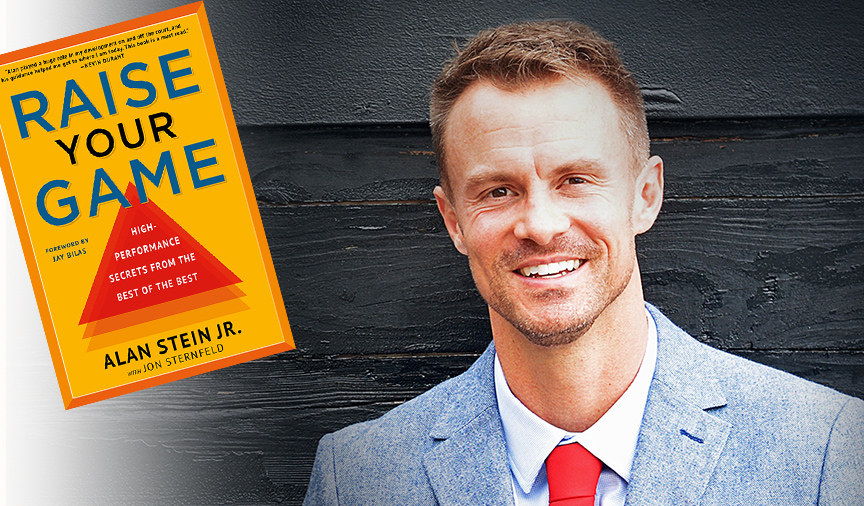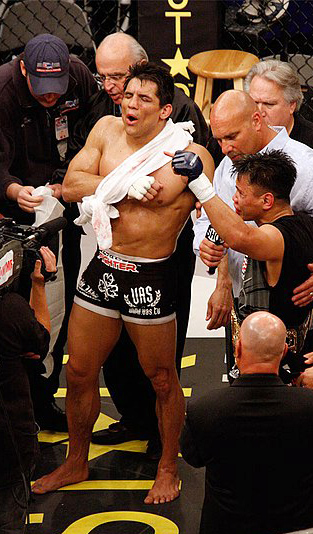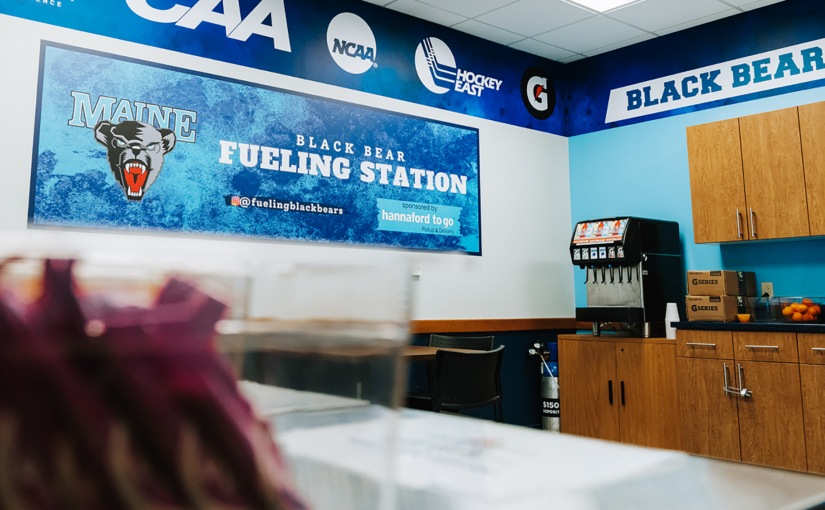Raise Your Game: Failure uncovers learning opportunities
» The following is an excerpt from Alan Stein Jr.’s upcoming book, “Raise Your Game: High-Performance Secrets From the Best of the Best.” Stein is a performance coach, consultant, speaker and author. He spent 15 years working with the world’s highest-performing basketball players. He also is a member of Coach & Athletic Director’s Editorial Advisory Board.

How strong is your bounceback?
The reason I’m so passionate about embracing failure is that I used to shy away from it. In fact, it wasn’t until I was in my early thirties that I changed my mindset to accept my mistakes as valuable, as a necessary part of the process. No one gets it right every time. So the question isn’t whether or not you will fail, as everyone inevitably does. It’s how you respond. How you deal with failure determines your ultimate happiness and success. Let’s call it your bounceback.Failure is about walking headfirst into “no,” into adversity, into discomfort.
Apple’s Steve Jobs will forever be hailed as a visionary genius, but the story about him that gets told the most often is how he was fired from the company he built, only to return and save it twelve years later, turning it into one of the most successful and important brands on the planet. To his credit, Jobs didn’t bury that part of his biography; he often retold the story himself, because he understood it was the foundation of his future success. Failure only becomes positive or negative based on how you frame it and how you personalize it. The exact same failure can inspire you, motivate you, and teach you, or it can crush you, debilitate you, and paralyze you. It is a matter of choice.
Failure is about walking headfirst into “no,” into adversity, into discomfort. We must condition ourselves to embrace it and thrive from it. I’m grateful to have gotten a lot of yeses in my life. And almost all of them have come after countless no’s. As a professional speaker, I hear no on a daily basis; I think of it as just part of my workday. But I have always felt that every “no” gets me closer to a “yes.” If you are constantly getting yeses, then you aren’t pushing hard enough. If you didn’t lose the ball, then you haven’t learned anything.
It’s up to you how you choose to feel about and perceive your misses. It goes back to the growth mindset. Those who see failures as walls will do nothing to get past them. Those that see them as doors will do the work to get them open.
Be ready to receive

An important part of being coachable is being open to lessons from anywhere and anyone. Former Ultimate Fighting Champion Frank Shamrock was once pound-for-pound the deadliest man in the world. He is an extremely fit, handsome man with a powerful presence and energy. Though Frank speaks with authority, he’s actually quite reserved, the perfect mix of confidence and humility. Though he knows he could beat any human to death in six seconds, he carries himself in a way that neither celebrates nor hides this fact. I got to spend quality time with Frank at a retreat recently. When I spoke with him, he was open about all the mistakes he has made in his personal life and how hard he has worked to correct them and move forward.
The first twenty-one years of Frank’s life were brutal. He suffered abuse as a child and he was in and out of the foster care system and then jail. After making the choice to turn his life around, he began his fighting career, which he approached differently than he had anything in his life up to that point. Frank took a very scientific and cerebral approach, which was unheard of at the time. He studied his opponents’ weaknesses, leverages, and fighting styles, developing a clear advantage as soon as he entered the Octagon, the UFC ring. He constantly evolved as a fighter, never wanting to become predictable. “Everything works, but nothing works forever,” he told me.
Frank lives by a system he calls the +, =, – system:
- + (plus): He finds someone ahead of him and learns from them.
- = (equal): He finds someone equal to him and exchanges with them.
- – (minus): He finds someone he is ahead of and shares with them.
I love this system for many reasons, but one is that it recognizes that ideas, help, and motivation can come from anyone and anywhere. Frank doesn’t see some people as worth the time and some not. Everyone has value. Lessons are all around us.
You need to carry a readiness to receive instruction and be open about where you get ideas. On Amazon.com, the idea of other web pages—even homemade ones—having an Amazon button? It came from a customer. Bezos has built Amazon into a goliath, partly because of “a willingness to jump on new ideas that come from any source.”17 It takes humility and openness to accept ideas from any and all sources. New results require new behaviors. If nothing changes, nothing changes.
In the early 1980s, the rock band Metallica was on the verge of becoming huge when they kicked out their first guitarist. They held auditions and hired an unknown kid, Kirk Hammett, to become their new guitarist. The first thing Hammett did after getting the job of lead guitarist for what was about to be the biggest band in the world?
He hired a guitar teacher.
Watch the trailer for Alan Stein Jr.’s book, or click here to pre-order your copy.
References
17. Richard L. Brandt, One Click: Jeff Bezos and the Rise of Amazon.com (New York: Portfolio, 2011), 88.





